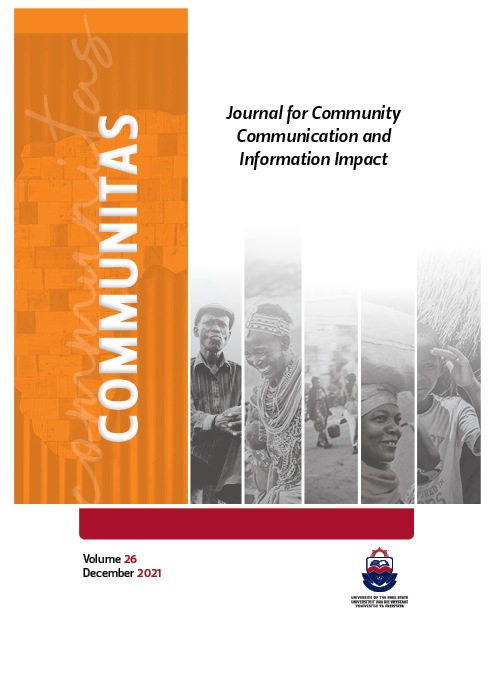The role of work-integrated learning in preparing journalism students for the workplace
DOI:
https://doi.org/10.38140/com.v26i.5101Keywords:
Work-integrated learning, Journalism, Students, Media, Academic WIL supervisors, Industry WIL mentors, Experiential learning, Internship, Workplace readiness, EmployabilityAbstract
Over a broad spectrum, South African employers complain about the workplace readiness of newly graduated tertiary students. It is against this background that this article explores the role of work-integrated learning (WIL) in preparing tertiary journalism students for a work environment. Over the years, internship programmes in academic journalism training have proved to be the most efficient way to prepare students for the workplace. At the Tshwane University of Technology in Pretoria, South Africa, a six month work-integrated learning module, in which the media and communication industry were directly involved, proved crucial for the success of the journalism training programmes and was widely accepted and welcomed by employers and industry mentors. This article investigates the importance of preparation for WIL in the field of journalism. It further examines how undergraduate journalism students perceive the WIL programme and how they work towards rendering themselves employable in the media industry. The findings indicate that a combination of theory and practical training is important in journalism education to produce graduates who are work ready.
Downloads
##submission.downloads##
Published
Issue
Section
License
Copyright (c) 2022 Tshamano Makhadi, Dr Pedro Diederichs

This work is licensed under a Creative Commons Attribution 4.0 International License.
All articles published in this journal are licensed under the Creative Commons Attribution 4.0 International (CC BY 4.0) license, unless otherwise stated.









